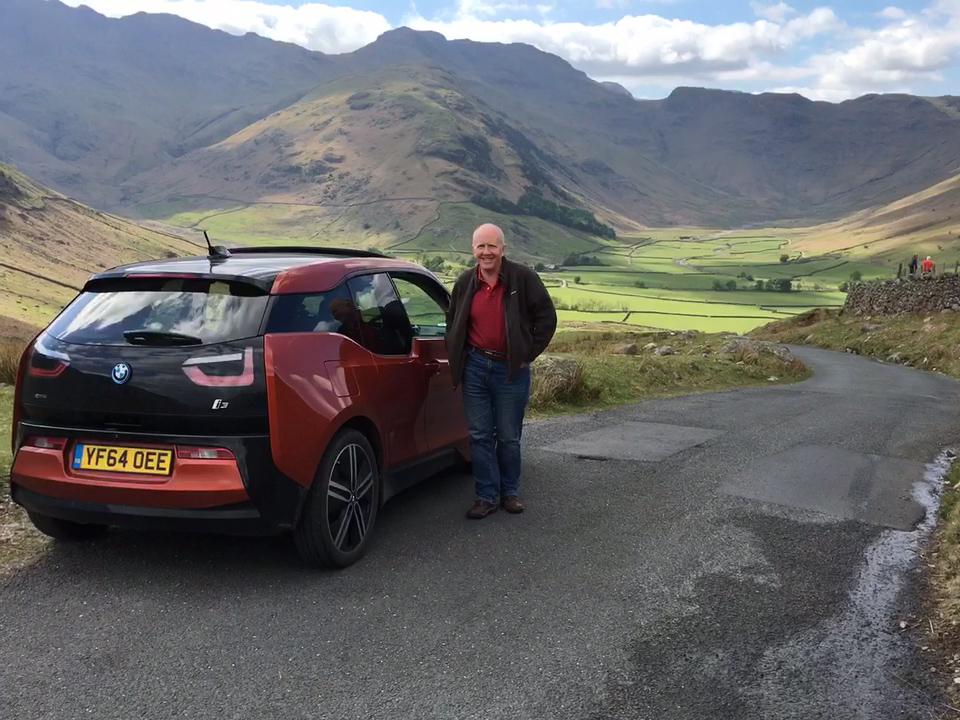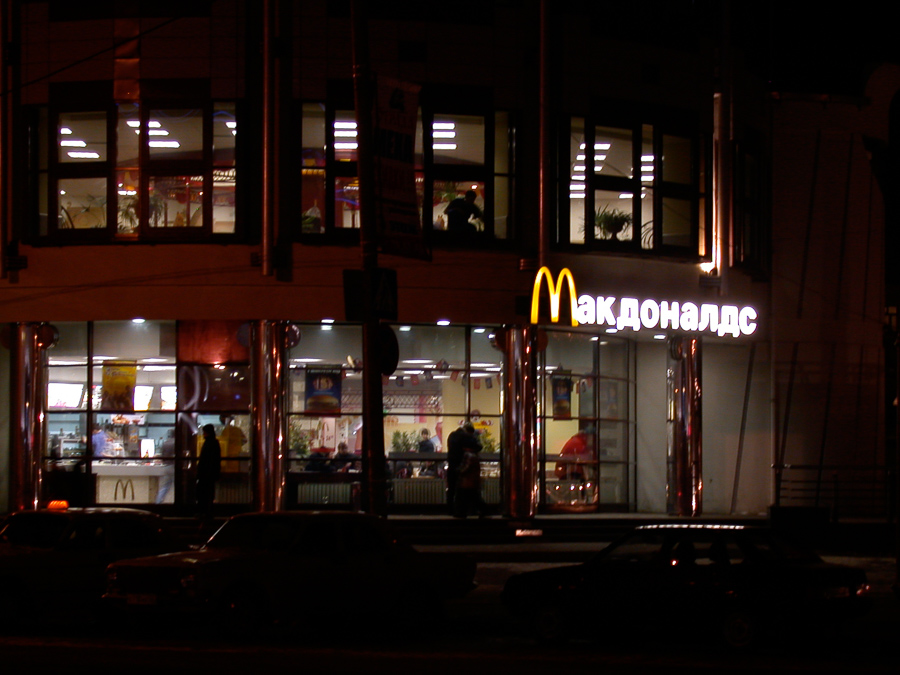Black man. White House. Absolutely superb images captured by Pete Souza.
The boy had told Obama: “I want to know if my hair is just like yours.” The president had replied: “Touch it, dude!”
Black man. White House. Absolutely superb images captured by Pete Souza.
The boy had told Obama: “I want to know if my hair is just like yours.” The president had replied: “Touch it, dude!”

As regular readers will know, a couple of weeks ago I took my electric car to the Lake District with my friend Hap. I go there fairly regularly, but this was the first time since I got the i3, and I was wondering how it would cope. Charging points are fairly scarce there, and the gradients very different from its normal home in East Anglia. Would we get stranded somewhere on the Whinlatter Pass?
In fact, I needn’t have worried. Our charming B&B in Grasmere let us plug in each night, and even though we did a fair bit of driving around, we always came back at the end of the day with more than 50% charge left. In truth, though you can spend a lot of time driving there, the distances are usually fairly small because so much of it is below 30mph (something which also helps the efficiency!) The steep uphill slopes swallow battery but this is offset somewhat by the regenerative braking on the steep downhill ones.
What I hadn’t expected was just what a delight the car was to drive there! This was partly because creeping down valleys and winding over mountain passes is much more pleasing in an almost-silent vehicle (though you do need to watch out for walkers in the middle of the road who haven’t heard you coming). It was partly because it loves the corners, as a BMW should. And it was partly because the big windows and high driving position gave such a good view of the landscape.
But it was mostly because of what i3 owners call the ‘single-pedal driving’: the fact that the regenerative braking kicks in as you lift your foot off the accelerator, meaning that under normal circumstances you very rarely need to use the brakes. If you know the Lakes, you’ll know there are many roads where, in a normal car, you need to move your foot from accelerator to brake on every corner. You need to change gear around every second bend. I, on the other hand, was just gliding around the corners and up and down the hills with my foot on the one pedal. No gear changes (I don’t have a gearbox, even an automatic one). No sound of straining engines, because it doesn’t make any sounds. No need to engage low gear for engine braking on the steep slopes, because engine braking is what I do all the time. I even enjoyed the long descents, because they recharged my battery.
No, all in all, I spent a lot of time grinning as we drove from Grasmere to Borrowdale, from Great Langdale to Coniston, from Tilberthwaite to Ambleside. It’s the best place to drive this car, and it is certainly the best car I’ve ever driven there.
Looking back through some old photos from a visit to Russia about 11 years ago, I came across one that I took as a guide to the pronunciation of all those unfamiliar characters…

A couple of days ago we fired up our new barbecue for the first time, but, this being England, we had to wipe the raindrops off first. Weren’t they pretty, though? My Australian cousins may scoff, but still…
If you click it to download the full-sized version, you may be able to make out a few self-portraits of the photographer.
Sing along!
Raindrops on Webers
and bangers on barbies…
I left my bike parked by a fence while walking Tilly this morning. When I came back, I found some very interested onlookers.
They watched with interest as I unlocked it and then we started a gentle shuffle to get the bike out. (The photos don’t show the next row of spectators behind – another half-dozen or so.)
The first autonomous vehicles really to hit our roads in any numbers will probably not be Teslas, nor Google- or Apple-branded family cars, but big trucks. This makes perfect sense, when you think about it:
And so it was that a convoy of self-driving trucks arrived in Rotterdam last month from all over Europe, and from six different manufacturers.
Trucks are also built in a more modular way than many other vehicles, so it’s easier to retrofit self-driving capabilities to existing vehicles. This is the current modus operandi of a new company called Otto, started by ex-Google employees, and with a pleasingly compact URL: http://ot.to . More information here.
I’m going to write again soon about other ways in which I think autonomous trucks may herald the likely transition into other autonomous vehicles. Watch this space.
Meanwhile, the truck drivers will soon be able to sit back and watch some old movies to remind them of the past…
I’m working out the details of my next invention, and I think it’s going to be a big one, with serious benefits for humanity. I thought I’d mention it here in case anyone wants to pitch in some venture funding for its development.
As it becomes commonplace, future generations will know the technology by a friendly, easily-pronounceable name that weaves itself into everyday language — maybe “”Squeezies” — and it’s only by looking it up on Wikipedia that you’ll discover the origins of the name in the original acronym SQSCZs – Sir Quentin’s Self-Closing Zips.
The idea is simple: Squeezies are just like normal zip fasteners except that a few minutes after you unzip them, they slowly and gently zip themselves back up again. This will be done using some terribly cunning micro-motors and very small batteries or, more probably, some clever nanomaterials; I’m still working on the details.
Squeezies will be fitted to travel clothing to thwart the pickpockets in the Paris metro and Naples railway stations. They will be fitted to gentlemen’s trousers to reduce embarrassing sartorial lapses. And they will be fitted to rucksack compartments to avoid, say, losing the keys to your Grasmere B&B yesterday halfway up the highest mountain in England and not realising until many hours later (just to pick a hypothetical example).
My friend Hap and I drove from Cambridge to Grasmere today — 280 miles — using about a pint of petrol. It should have been all-electric, but we got lost trying to find one of the charging points!
You may or may not think that having to visit rather more M6 service stations on the way than one might otherwise do makes such a form of transport worthwhile. But I think you’d agree that paying about £1 each, to cross the whole country to a place where you can do this walk before dinner, is pretty good value:
I recently overheard a couple of BBC friends describing it, if I remember correctly, as ‘an organisation characterised by fear’. Many of us yearn for what the BBC was able to do in the past, and is no longer able to do now because of government and other interference.
Chris Patten, in a speech recorded in the Huffington Post describes his concern that other big issues this summer may distract us from the opportunity to fix some of the challenges when the Charter is next renewed.
Extract:
Of course, enriching our lives goes far beyond journalism. The BBC is at the cultural heart of this Nation. In fact, it is the cultural heart, and I welcome the measures taken by Tony Hall to forge closer partnerships with the nation’s other great cultural institutions. And cultural enrichment is not just about the Arts. It’s about Science, and Philosophy, and History too. It’s about Ideas and Enquiry: it’s about thinking the unthinkable. Here I fear the BBC has lost some of its ambition and needs to find it again. We need more programmes that are, frankly, slightly above our heads. Not inaccessible, but programmes that make us stretch to reach them. The BBC should remember the great auto-didactic tradition in British culture, not least in working class communities. BBC2 once offered that degree of challenge, but the tough stuff has largely gone to BBC4 and there, because of budget cuts, it’s sometimes made with glue and string. The long-term security that licence fee funding is supposed to bestow on the BBC should give it the confidence to challenge us all. But every time politicians grab an easy headline at the BBC’s expense; every time they question its scope, chip away at its funding and occasionally swipe great chunks of it; every time they seem to doubt its very future – they erode the BBC’s confidence to make bold decisions about content.
Worth reading in full if you care about what the BBC means today. Like the NHS, I fear it may not survive very much longer in anything like the form it had in its glory days. But I could be convinced otherwise — would be delighted to be so, in a world where everything else is funded by click-bait — and compared to the NHS, the BBC is very much easier to fix.
Reducing the fear would be a very good first step.
Yesterday, we bought some new kitchen knives, 25 years after last doing so. These new ones are terrifyingly sharp, and will no doubt result in the loss of a few digits over the coming weeks, but they did enable me to cut a blueberry into eighths before putting it on my cereal this morning.
I haven’t felt a desire to do this in the past, but it’s pleasing to know that I now can, should the need arise.
…when you’re no longer the youngest person at the garden centre. 🙁
© Copyright Quentin Stafford-Fraser
Recent Comments